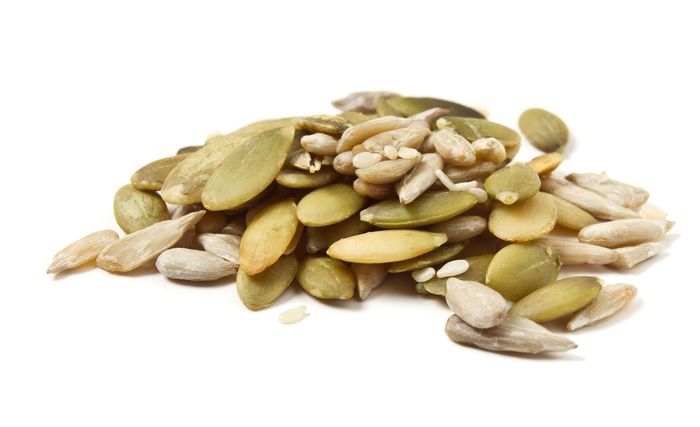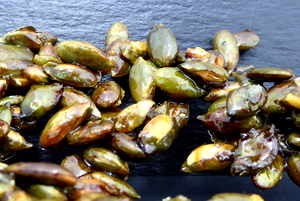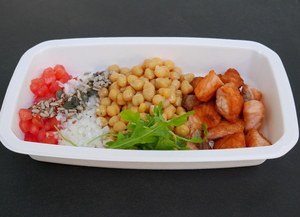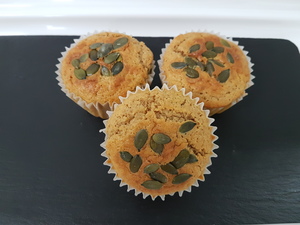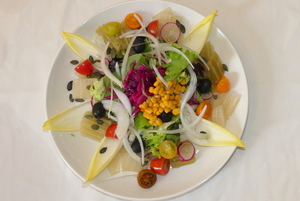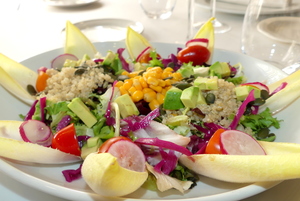Pumpkin seeds
Pumpkins bear seeds inside with great benefits and properties for our health and culinary uses.
These seeds are consumed in many different countries and they can be easily found in many markets.
They have a soft taste, mostly sweet, and a very pleasant texture when chewed.
Roasted pumpkin seeds are often eaten as a snack or appetizer, although raw pumpkin seeds offer more nutritional value.
Pumpkin seeds are quite popular in many cultures. They are added to soups, salads, sauces, vinaigrettes, and dressings, and they can also be used to make bread, biscuits, cakes and sweets.
Nutritional information (100.0 kg)
Energy
617.0
kcal
Carbohydrates
14.7
g
Proteins
29.9
g
Lipids
49.1
g
Sugars
1.29
g
Salt (Sodium)
18.0
mg
Folic acid
58.0
ug
Vitamin C
1.9
g
Vitamin A
1.0
ug
Zinc
7.81
mg
Iron
8.82
mg
Calcium
46.0
mg
Cholesterol
0.0
mg
Polyunsaturated fatty acids
20.98
g
Monounsaturated fatty acids
16.24
g
Saturates
8.66
g
Fiber
6.0
g
The data is merely a guide and should not be used for medical purposes. Those responsible for the web disclaims any responsibility.
Recipes
-
Type of dish
- Beers
- Cocktails
- Breakfasts and brunch
- Burguers
- Juices, milkshakes and beverages
- Shellfish
- Bread and pastries
- Pizzas, patty
- Dessert
- Pasta
- Sándwich
- Pastries
- Finger foods
- Ice creams and sorbets
- Legumes
- Salads
- Eggs
- Patty
- liqueur
- Harvard plate
- Main course
- Meats
- Fish
- Birds
- Vegetables
- Soups and creams
- Rices
- Coffee, chocolate and infusion
- Cheeses
- Appetizers and canapes
- Temperature
- Cuisine type
- Additional culinary preparation
- Conservation technique
- Seasonal recipes
-
- Aromatic herbs
- Beverages
- Big game hunt
- Bread and pastries
- Canned goods and pickles
- Cereals
- Condiments, spices and additives
- Cooked, salted, preserved and cold meats
- Dried fruits and nuts
- Dry pulses
- Edible oils and vinegars
- Eggs and derivatives
- Feathered game hunt
- Fish cuts
- Fishes
- Insects
- Kitchen and bakery tecniques
- Kitchen and bakery utensils
- Meat cuts
- Meats
- Milk, cream and derivatives
- Mushrooms
- Offal
- Pasta, rice, flour and derivatives
- Poultry
- Seafood
- Service techniques
- Service utensils
- Vegetables cuts
- Vegetables, fruits, tubers and seaweed

